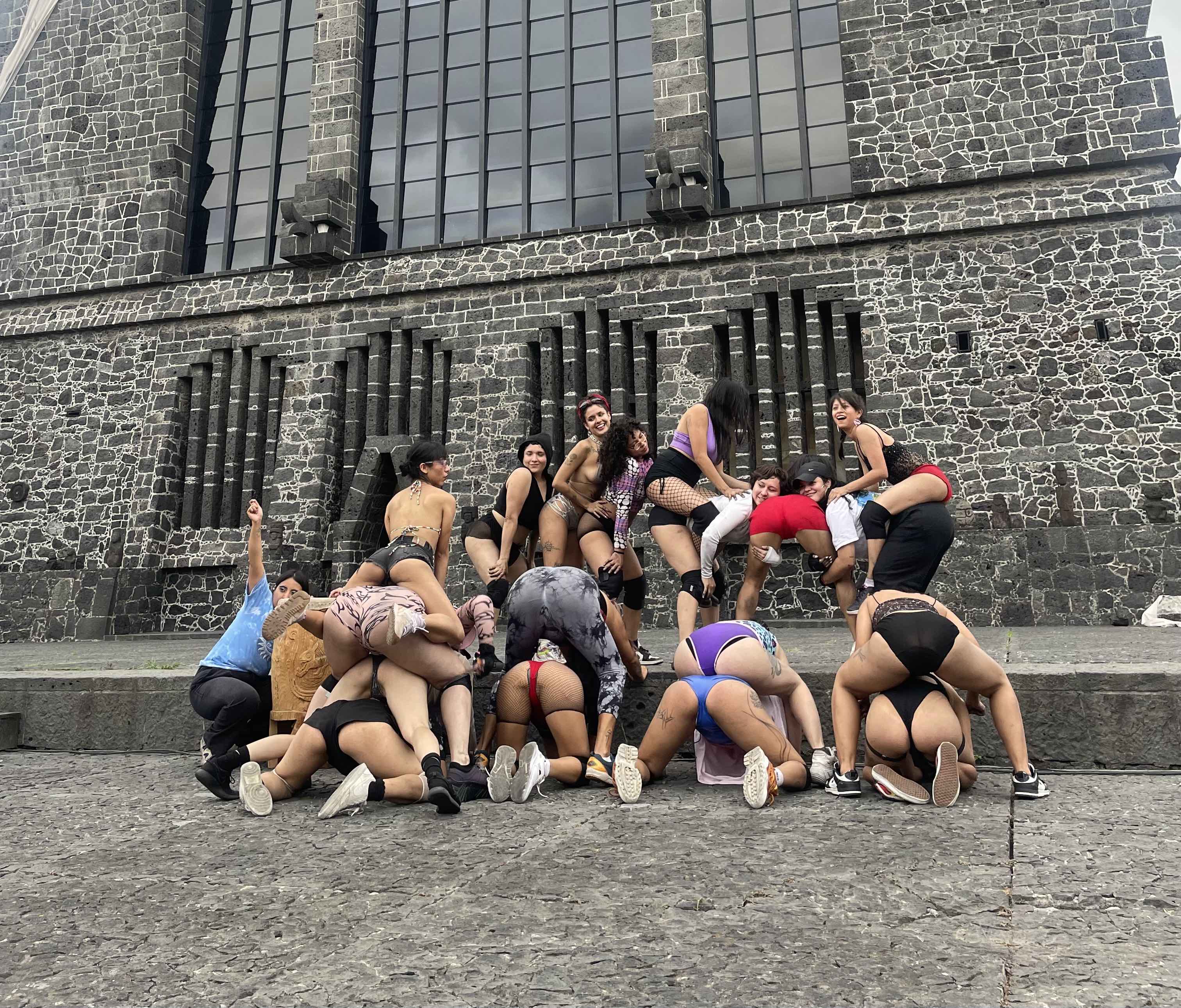
Interview
Not dying until justice is found. Interview with Jenny Granado
by Sofía Ortiz
Reading time
6 min
The first time I met her, Jenny invited my boyfriend to eat cake directly off her butt. It was her birthday, and she wanted to have as many mouths on her cheeks as candles on her cake. In a bar in Doctores, on all fours on a rickety table, with a beaming smile, she called us to partake in the birthday butt-eating ritual.
Several years later, I am at her home studio. Goonie, her cat, is on all fours eating spinach off the table. A mirror covers one of the walls, clothes hang at one end, and there is a large table with notebooks and audio equipment; honking and motorcycles can be heard from the street. Jenny prepares golden milk for me. When she offers it, I initially refuse, but then I reconsider —much of what Jenny does is about practicing care— so, well, I let myself be taken care of.
Jenny Granado —also known as Kebra— is a DJ, workshop facilitator, performer, and archivist. She began by showing me the inner workings of her hard drive, organized by year, project, and a record of events: parties, performances, and talks. She opened a file, it was her master's thesis.

Jenny Granado. When I arrived in Mexico in 2014, I wanted to work with the archives of the Cineteca: the construction of Mexican masculinity, machismo, women's archetypes, and romanticism. However, later, I thought about working with something closer to me. Two years later, I entered ENCRYM to pursue a master's degree in the conservation of documentary collections and decided to focus on the funk culture of Brazil.
"Preserving the cultural archive" sounds analogous to the title of her master's thesis: Legítima ilegalidad [Legitimate Illegality]. How do you archive —organize, classify— something that is alive and, therefore, changing? What is the usefulness of thinking about culture as an archive? How do we legitimize a movement that operates on the margins of society without killing the dissident spirit that generates it?
JG. I could think of the preservation of funk from many angles, for example, from its products: discography, party videos, and clothing. But we cannot forget that it is an archive generated by racialized people —black and brown bodies— precarious and threatened in the outskirts of certain Brazilian cities. Black youth is funk, it is the living archive. If the police come and kill the archive, what do I do?
So the question is how to take care of the archive, that is, how to take care of people. When I ask Jenny if she is an activist, she says no. "How dangerous!" However, there is something in her practice as an artist that responds to the same urgency as activism: we have to do something. "I don't want to die without seeing some justice," she tells me. Jenny's activism is softer, more playful, and more direct: she challenges people through the body.
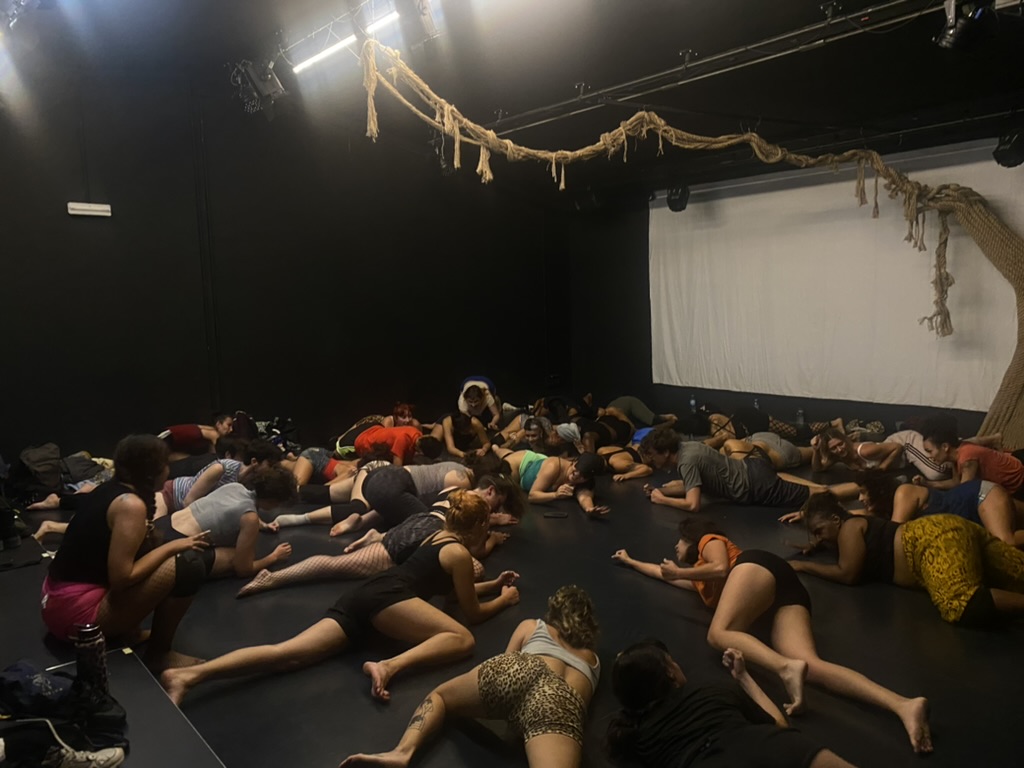
For several years, Jenny has been conducting Desculonización workshops. These are long sessions, 3 to 5 hours, of movement, twerking, and funk, combined with decolonial theory. She has deculonized in various spaces such as parks, houses, museums, and via Zoom. Recently, several butts twerked for a week at the Anahuacalli Museum. Each participant becomes an auxiliary USB of funk culture, participating in the conservation of a living archive.
JG. The intention of this archive is to make a cultural, creative, political, and social assessment against the criminalization of peripheral knowledge. We usually think that knowledge only comes from books, school, academia, but there is much knowledge that comes from other sources: the body, herbs, and oral tradition. These are placed below intellectualized knowledge, the head above the body. Therefore, valuing these types of knowledge and valuing the body is a decolonial key.
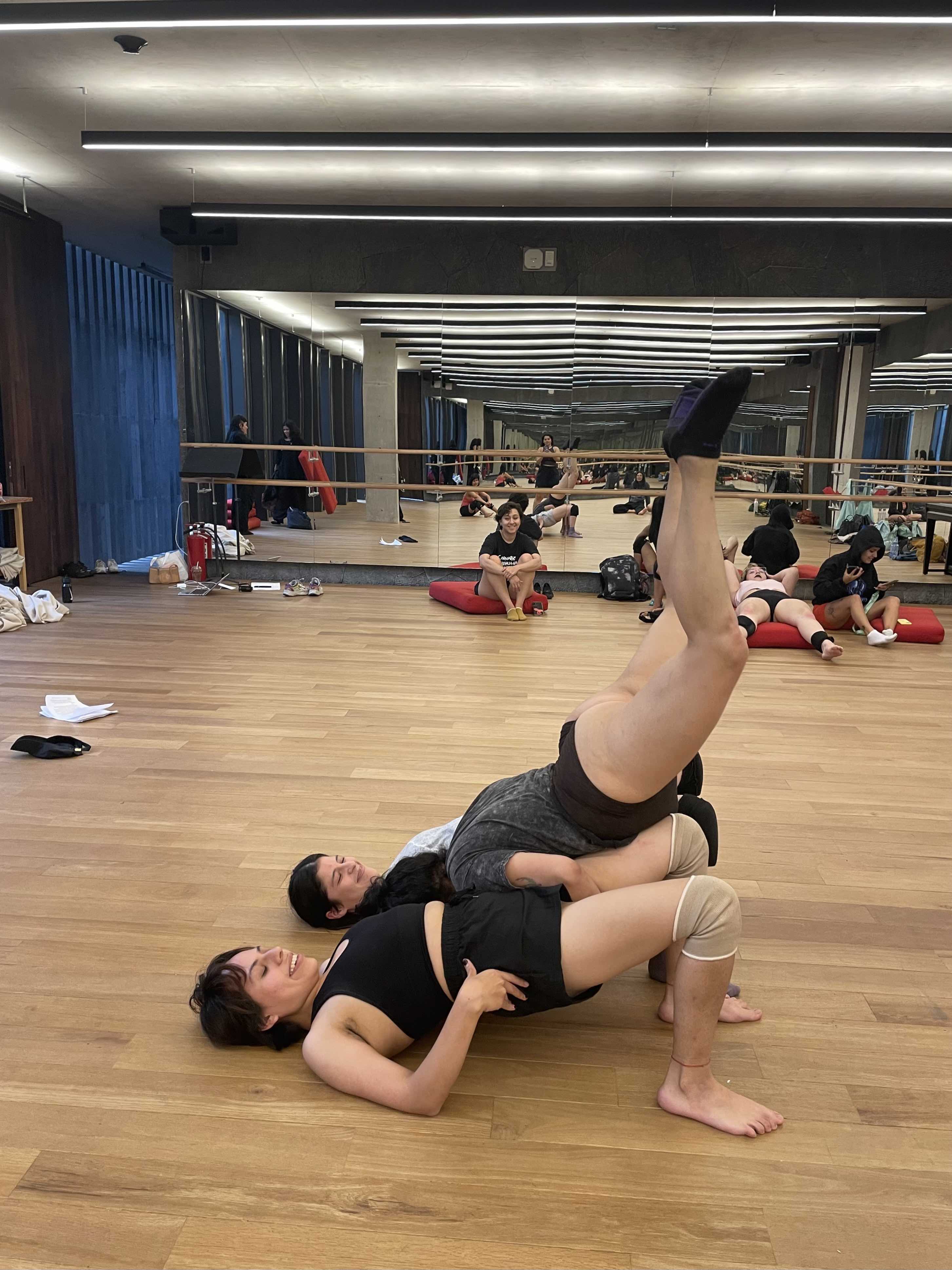
Jenny grew up in Uruana, a small town in the state of Goiás. Her upbringing was surrounded by typical social expectations: studying medicine, law, etc. However, in adolescence, she began to encounter ideologies and cultures that changed her life: straight edge, punk, slam, hacktivism, and funk.
JG. Connecting with my body opened my mind. I became a vegetarian, and it was a turning point in becoming conscientious about my health. At the same time, I liked to party: sex, drugs, and dancing, everything that had to do with the flesh. I was hungry! I could write a book about my stories; they're fantastic. I have a lot of luck; I think I've been close to death several times.
She laughs. It's a smile I recognize when I look at the documentation of her performance Mi culo para presidente [My Ass for President]. Jenny, along with two masked dancers and a "reporter," walks the streets of Tijuana. She wears a red cheerleader outfit, a shaved head, and the same mischievous smile. The reporter approaches several men and asks if they want to receive a butt smack to the face. Those who accept sit on the floor with a Donald Trump mask while Jenny, facing away from them, puts her hands on the ground, raises her legs on their shoulders, and smashes her butt in their faces. In funk dance, this is called a "butt beating." "I like it when the passive subject, the butt, becomes the active subject," she tells me.
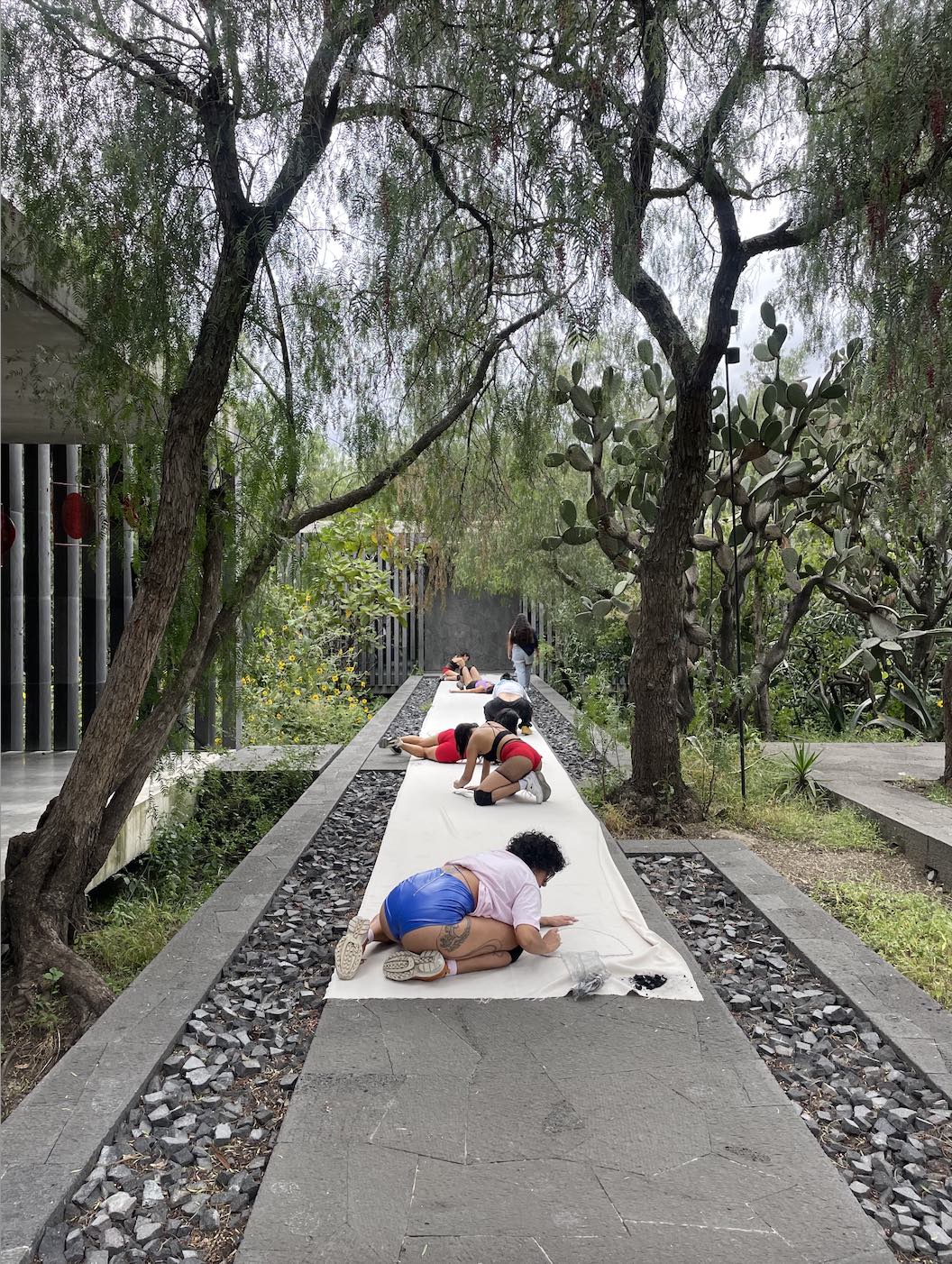
JG. Moving your ass is something vulnerable. And Deculonization is a space of vulnerability, not to keep things inside the body. Now that they killed the magistrate Jesús Ociel Baena, many people in my network were having a very hard time, distraught. And I say we have to go out. I believe a lot in movement; I think these spaces exist for people to move. I don't like moving alone; I prefer to be with people. And moving has transformed my life, my mind, my everything.
Goonie, the cat, sits on Jenny's legs, burying its face in her breasts. "He wants to breastfeed," she tells me.
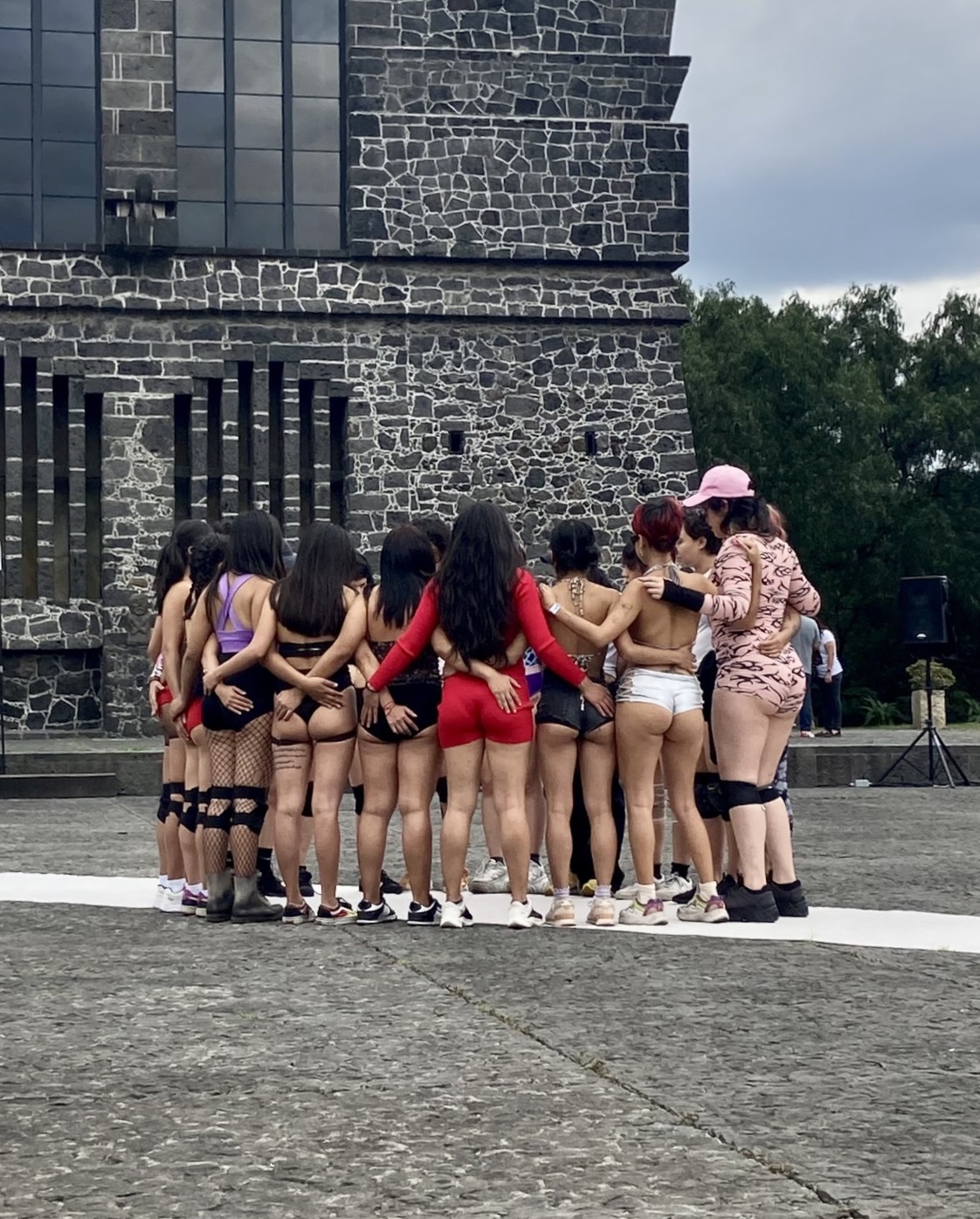
A casual scroll on Jenny's Insta feels like a steampunk accelerationist whirlwind with boobs, music, makeup, thongs, and liquid transparencies. And although all these worlds touch her work, the core of her practice is much simpler: the body.
At some point, Jenny takes out several of her notebooks and shows me notes and drawings. At the beginning of all her workshops, she asks people why they are there. She does it from personal curiosity but also to understand the narrative threads of anxiety and desire that traverse us simply as bodies. We pause at a couple of answers. "My aunt brought me here," makes me laugh a lot. However, another answer gives us pause: "to support my creative project, I need to support the body."
The body permeates everything. The body sustains the practice. The body is a repository of knowledge. Information flows from the nerves through movement. Put a beat to a baby, and the baby dances: universal truth. Jenny says that since she started activating her hips, her intuition is on point. I ask her if she is more of a witch now; she laughs and tells me she has always been one. I believe her.
Published on December 23 2023